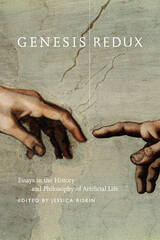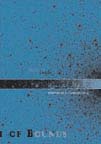
Working mostly alone, almost single-handedly writing 250,000 lines of computer code, Steve Grand produced Creatures®, a revolutionary computer game that allowed players to create living beings complete with brains, genes, and hormonal systems—creatures that would live and breathe and breed in real time on an ordinary desktop computer. Enormously successful, the game inevitably raises the question: What is artificial life? And in this book—a chance for the devoted fan and the simply curious onlooker to see the world from the perspective of an original philosopher-engineer and intellectual maverick—Steve Grand proposes an answer.
From the composition of the brains and bodies of artificial life forms to the philosophical guidelines and computational frameworks that define them, Creation plumbs the practical, social, and ethical aspects and implications of the state of the art. But more than that, the book gives readers access to the insights Grand acquired in writing Creatures—insights that yield a view of the world that is surprisingly antireductionist, antimaterialist, and (to a degree) antimechanistic, a view that sees matter, life, mind, and society as simply different levels of the same thing. Such a hierarchy, Grand suggests, can be mirrored by an equivalent one that exists inside a parallel universe called cyberspace.

Since antiquity, philosophers and engineers have tried to take life’s measure by reproducing it. Aiming to reenact Creation, at least in part, these experimenters have hoped to understand the links between body and spirit, matter and mind, mechanism and consciousness. Genesis Redux examines moments from this centuries-long experimental tradition: efforts to simulate life in machinery, to synthesize life out of material parts, and to understand living beings by comparison with inanimate mechanisms.
Jessica Riskin collects seventeen essays from distinguished scholars in several fields. These studies offer an unexpected and far-reaching result: attempts to create artificial life have rarely been driven by an impulse to reduce life and mind to machinery. On the contrary, designers of synthetic creatures have generally assumed a role for something nonmechanical. The history of artificial life is thus also a history of theories of soul and intellect.
Taking a historical approach to a modern quandary, Genesis Redux is essential reading for historians and philosophers of science and technology, scientists and engineers working in artificial life and intelligence, and anyone engaged in evaluating these world-changing projects.

READERS
Browse our collection.
PUBLISHERS
See BiblioVault's publisher services.
STUDENT SERVICES
Files for college accessibility offices.
UChicago Accessibility Resources
home | accessibility | search | about | contact us
BiblioVault ® 2001 - 2024
The University of Chicago Press









